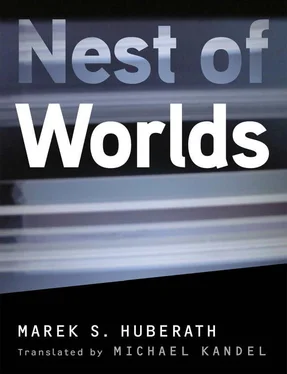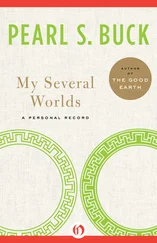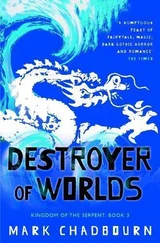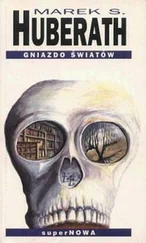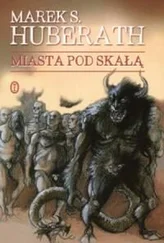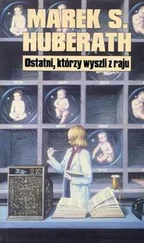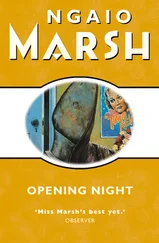Today is a great day! I did it! I discovered the formula behind the number of books in a nested world. If you figured this out ahead of me, Dave, then you’re a brain of the first order, and you can chop farther than the eyes can see.
I’m no brain of the first order, thought Gavein, and I certainly don’t chop far. He had no idea what the sequence was. It was hard enough following Zef and his number-magic act; he wasn’t about to compete.
The new numbers helped a lot. Consider them again:
2, 3, 5, 8, 13, … (the dots are the next nesting, which I haven’t got to yet in Nest of Worlds ), and now imagine that at the beginning there is something, a number also, because the whole thing may have been set up precisely in this way by the author.
so we have:
x, 2, 3, 5, 8, 13 …
You see? X must be 1. Add 2 to x, and you get 3, add 3 to 2, and you get 5, and so on. That’s the algorithm! It goes as follows: The next number is the sum of the two preceding. A lovely, elegant rule. I call it Zef’s Series. If not for the current mess with all these deaths, I would be awarded a degree for coming up with such a series and studying its properties. Zef’s Series: 1, 2, 3, 5, 8, 13, 21, 34, 55, 89, …
I’ll call Dr. Babcock at the Mathematics Division. What a great master’s thesis this will make. They’ll allow a physics student to do his dissertation in math.
In Lavath they don’t, Gavein thought.
That wasn’t the end of the note. A telephone bill was taped to the index card. On the back of the bill, more writing:
I have this idea, Dave. I won’t tell you it right away, because it’s kind of paranoid. Just read my notes in the order I wrote them. They’re stuck in the places they should be found.
My idea has to do with the 1 at the beginning of the series of versions of Nest of Worlds. The 1 must be there for the series to make sense. But…
Suppose.
If the worlds are nested one inside the other, let us posit the existence of a Superworld, a world in which is nested the world where I live, and where Laila lives, and Dave, Mom, and everyone else. Such a Superworld would possess the number N = 0, according to the formula. What follows from this?
First: the number of Lands would equal 12, that is, 1. In other words, a world with only one Land, and in that Land you would have to stay for the entirety of your life. The Land would be coextensive with the Superworld, since there would be no other Land! With N = 0, the world would be homogeneous, that is, you could travel throughout it at any age.
The existence of a Superworld is nothing I can prove, but at least my hypothesis is self-consistent.
Let’s look at the other formula. We find that in this Superworld Zero the number of Significant Names equals 12 0, that is, 1. Again 1! How is that to be understood, one Name for everyone?
I looked in the encyclopedia. It says there that the Significant Name is the emblem of a person’s fate. It tells how a person’s death will come. Flued , for example, means “From water,” Udarvan means “From lightning.” No exception to the Rule of Names has been recorded. Had there ever been one, it would have been remembered throughout the generations.
But one Name only for the inhabitants of Superworld Zero? What could it say about the death of each, so that the information would be common to all, true for all?
The message could be only “You will die.” Only that information is common to every death.
To sum up: If there exists a Superworld Zero (a world having the number N = 0), then it is homogeneous, not divided into Lands in which every person must spend a portion of his life. Each inhabitant may live in any place, at any time, in Superworld Zero. And secondly: No one knows what he will die of; he knows only that he will die. What do you think, Dave? Would you like such a world?
Actually, the difference is not so great, Gavein thought. A Name contains such general information about one’s death that few conclusions can be drawn from it. Only after the fact does it become evident that the Rule of the Name was fulfilled. And the number of Lands? If we didn’t have to move, life wouldn’t be so very different. But it’s more interesting to move… You travel, you get to know a new Land, a new way of life. If people didn’t have to move every thirty-five years, a lot of them wouldn’t stick their nose outside their door. Imagine the isolationism!
He grew serious. Had Ra Mahleiné and he not had to move from Lavath to Davabel, she would not have traveled by prison ship. Would not have been beaten. Would not have got cancer. They would have been a normal, happy couple…
The pistol worked. Gary tried it out at a distant garbage dump. He applied for a gun permit at the police station. Cukurca OK’d the application: the professional opinion of a psychiatrist was needed to establish the existence of a mental disorder—such as a persecution complex—but Gary’s last beating had left clear marks on his face.
One day Daphne sent Gary down to the Tunics for some chili.
Jutta led him to the kitchen, rummaged among the shelves. Unlike Margot, she had a thick band of hair on her shaven head, from front to back. It was tied in a braid that fell to her shoulders.
“Look, Gary, what we just bought,” she said, friendly. If not for their dress and hair, both girls would have been normal, even nice.
In a corner of the living room stood a tall clock with brass columns and a blue ceramic face. He felt a chill.
“It was on discount at Morley’s,” she said proudly. “Just for us, because we’re one of their best customers. I love that blue, don’t you? It’s like the clock is smiling.”
For Gary it was the grin of a skull. And he had never heard of anyone’s receiving an exclusive discount from Morley’s. He said nothing.
With Cukurca’s approval he got his gun permit. He intended to practice at a police firing range. Unfortunately his pistol didn’t pass inspection. Although he had cleaned and polished the weapon with care, it was more a danger to the person shooting than to the person shot at. The pistol was taken from him, but Cukurca made it possible for Gary to buy a used Lupar Attac, a powerful fifteen-cartridge gun, police-issue.
Gary paid to take a course on shooting. Every day, unless he was on a run, he’d be at the police firing range. Meanwhile Daphne spent hours at his place working on an article. So he could only meet Sabine right before or right after shooting practice. Balloch, the instructor, said that Gary was making excellent progress, but Gary doubted that. Aiming wasn’t easy, since with his strabismus he had no depth perception. Also, he had difficulty concentrating at the range; he would think about his next rendezvous with Sabine, or about how much time he could spend with her without Daphne growing suspicious.
Sabine, as he got to know her better and won her over more, became more and more interesting. She had a good body: slender hips, shapely breasts. There were some freckles on her back and chest—but a lot fewer than Daphne had. She was full of life and quite intelligent. When he stopped noticing her colorless hair and pink eyes, he saw a lovely girl.
Obviously this arrangement could not go on forever: an hour here, an hour there wasn’t enough for Sabine. Gary knew what he should do, but out of laziness or cowardice, or both, he put off speaking with Daphne.
Talk about cold water in my face. My notes could be published under the title “Letters from Zef to Dave about the Book; or, The Wave Theory of Stupidity.”
Читать дальше
